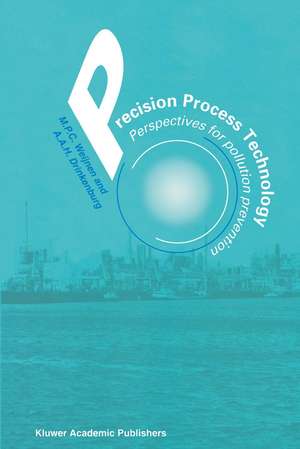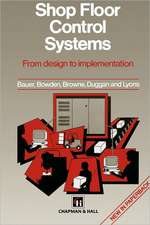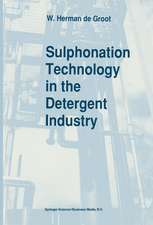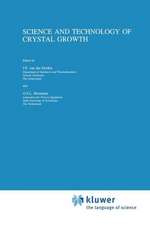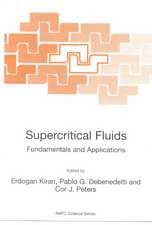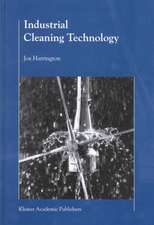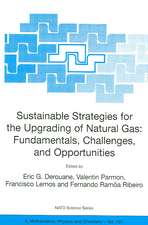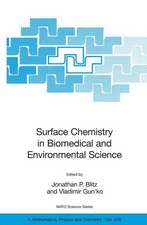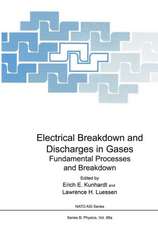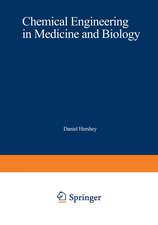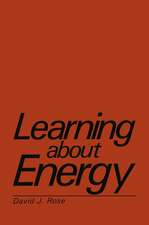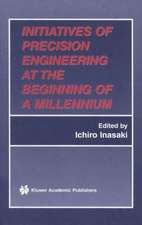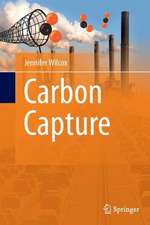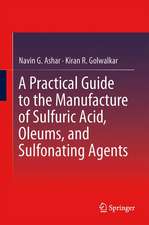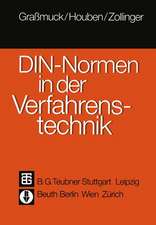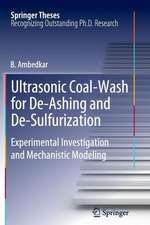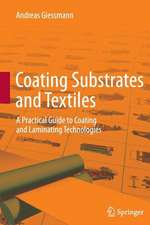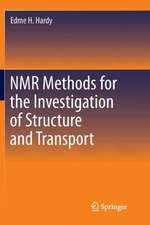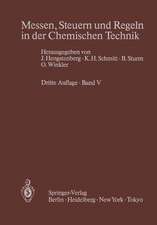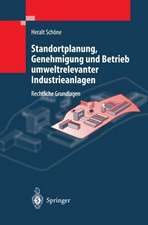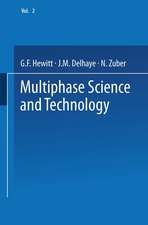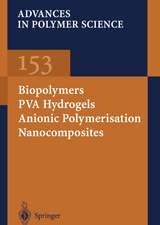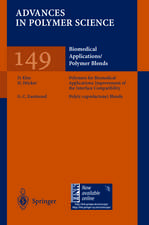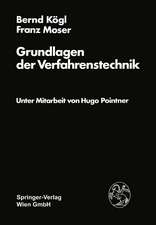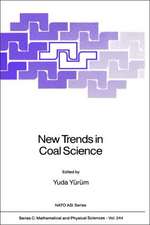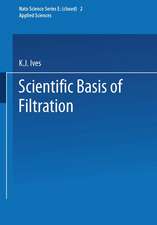Precision Process Technology: Perspectives for Pollution Prevention
Editat de M. P. C. Weijnen, A.A.H. Drinkenburgen Limba Engleză Paperback – 5 oct 2013
In the new generation of chemical production processes the keyword is precision. Precision in terms of selectivity and of efficiency, is required to maximize the utilisation of materials and energy. Moreover, enhanced precision is needed to exploit the quality of materials and energy to the full extent. Only by reducing the squandering of materials, energy and quality will a harmonious relationship be established between the process industries, the economy, and the environment. Process integration, as well as an integrated effort by the disciplines involved in process technology, will be of crucial importance in attaining the goals of precision process technology.
These emerging strategies involve an active exchange of tools and ideas between a variety of disciplines, not only in plant design and operation, but even more in the early stages of process development and design. By looking from various angles at what the future has in store for the process industries, this volume systematically lifts the corners of the veil and may inspire to establish a new tradition of precision in process technology.
Preț: 414.30 lei
Nou
Puncte Express: 621
Preț estimativ în valută:
79.28€ • 81.91$ • 65.95£
79.28€ • 81.91$ • 65.95£
Carte tipărită la comandă
Livrare economică 19 martie-02 aprilie
Preluare comenzi: 021 569.72.76
Specificații
ISBN-13: 9789401047722
ISBN-10: 9401047723
Pagini: 752
Ilustrații: XIII, 734 p.
Dimensiuni: 155 x 235 x 39 mm
Greutate: 1.03 kg
Ediția:Softcover reprint of the original 1st ed. 1993
Editura: SPRINGER NETHERLANDS
Colecția Springer
Locul publicării:Dordrecht, Netherlands
ISBN-10: 9401047723
Pagini: 752
Ilustrații: XIII, 734 p.
Dimensiuni: 155 x 235 x 39 mm
Greutate: 1.03 kg
Ediția:Softcover reprint of the original 1st ed. 1993
Editura: SPRINGER NETHERLANDS
Colecția Springer
Locul publicării:Dordrecht, Netherlands
Public țintă
ResearchCuprins
1. Introduction.- 1. General introduction.- 2. Introduction to the proceedings.- 2. Summary of the Conference.- Precision process technology - promising options and research Strategies.- 3. New Feedstocks for the Chemical Industry.- 1. Feedstock utilization for petrochemicals: Precision or luck?.- 2. Methane coupling - perspective for zero-loss olefin manufacturing.- 3. Pyrolysis of mixed plastics.- 4. Natural precision in carbohydrates.- 4. Energy Management in the Chemical Industry.- 1. Exergy analysis. Adding insight and precision to experience and intuition.- 2. Heat pumps in the Dutch process industry.- 5. Industrial Catalysis.- 1. The role of catalysis in waste minimization.- 2. Design of catalyst morphology tailored to process needs.- 3. Zeolites in fine chemical synthesis - contribution to environmental protection.- 4. Du Pont butane oxidation process.- 5. The analysis of non-isothermal data on the oxidation of carbon monoxide in a monolithic reactor.- 6. The bead string reactor: a compact, dust-proof, low pressure drop reactor with ordered catalyst material for heterogeneous catalysis.- 7. The partial hydrogenation of benzene and toluene to (methyl-)-cyclohexenes over modified Ruthenium catalysts.- 6. Adsorption from the Liquid Phase.- 1. Some developments in adsorption from the liquid phase.- 2. Single and multicomponent adsorption from liquid phase on activated carbon in a finite bath process.- 3. Application of regenerable adsorbents in edible oil refining.- 4. Preparation of a protein-repelling, yet hydrophobic membrane by treatment with non-ionic block copolymers.- 5. Sorption and desorption of hydrogen in metal hydride slurries.- 6. Hydrodynamics of centrifugal partition chromatography.- 7. The removal of cyanide with silver impregnated activated carbon.-8. Compact separation equipment using sorption by fibers.- 7. Hybrid Systems.- 1. Adsorptive separations and adsorptive reactors.- 2. Concentration Swing Adsorption: novel processes for bulk liquid separations.- 3. Adsorptive and chromatographic bioreactors.- 4. Economic and technical aspects of hybrid processes in the petroleum and petrochemical industries.- 5. Integrated dual and multiple separation systems applying combined separation techniques.- 6. Removal of volatile organic components from air by means of membrane technology.- 7. Hybrid membrane systems in the synthesis of specialties based on new vegetable oils.- 8. Single and multi-component transport through metal-supported MFI zeolite membranes.- 8. Transient Operations.- 1. Transient operation of fixed bed cat?lytic reactors.- 2. The selective catalytic reduction of NOx in a reverse flow reactor: a quick design procedure.- 3. Transient phenomena in three-way catalysis.- 4. A transient kinetic study of the CO-oxidation over a Cu-Cr catalyst.- 5. Pressure Swing Adsorption - the optimization of multiple bed units.- 6. Heterogeneous bioconversion of ionic compounds.- 9. Process Monitoring.- 1. On-line process analysis for bioreactor control.- 2. Sampling and analysis of dioxins, dibenzofurans and PCBs from Incinerators.- 3. Application of 11C and 15O positron emitters in exhaust catalysis Research.- 4. Membrane inlet mass spectrometry as an analytical tool for monitoring industrial emissions and processes.- 10. Process Modelling and Control.- 1. Process control: a challenge to chemical process engineers.- 2. Progress in pollution prevention through precision process modeling, design, and operation.- 3. Simultaneous process and system control design: an actual industrial case.- 4. On-line reactor monitoring forprecision process control.- 5. Important issues in batch process automation: automation in recipe Improvement.- 6. Real-time expert systems for process supervision.- 7. Neural nets for process control.- 11. Miscellaneous Contributions to Enhanced Precision.- 1. New centrifuge design leads to more efficient de-oiling of produced water.- 2. Application of the Peng-Robinson equation of state to calculate interfacial tensions and profiles at fluid interfaces.- 3. Liquid-liquid-vapour phase equilibria in the system methane +ethane + eicosane: precision in establishing complex phase behaviour.- 4. Application of styrene-degrading fungi in biofilters.- 5. Pollution prevention a key to a durable cleaner production.- 6. Dimensionally stable anodes with a long lifetime for Electroflotation.- 12. The Role of Serendipity in Research and Development.- Serendipity: its origin, history, domains, traditions, patterns, appearances and programmability.- Appendix Abstracts.- 1. Oleochemicals, trends and opportunities, J.W.J. Gielen and L.H. Staal.- 2. Process integration of production and product retrieval, M.L. Jansen, J.P.F. de Bruijn, A.J.J. Straathof, K.Ch.A.M. Luyben and W.J.J. van den Tweel.
